"Handmaid's Tale" Director Shares BTS Stories
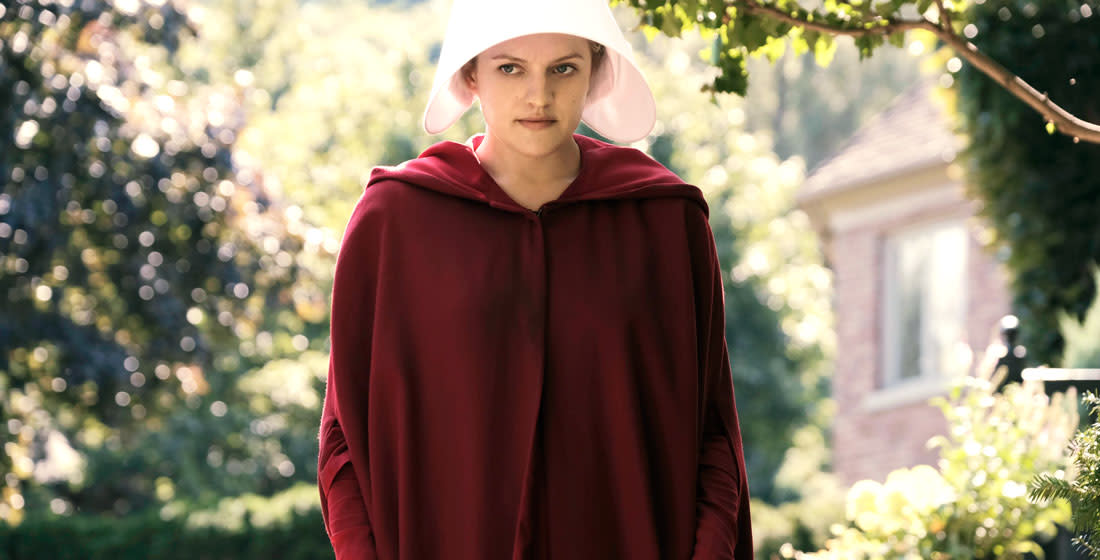
If you have nightmares about the eerie, dystopian ambience of Gilead after you watch The Handmaid’s Tale, you can thank Reed Morano. She’s the director behind the first three episodes of Hulu's modern adaptation of Margaret Atwood’s 1985 novel. She's also an accomplished cinematographer whose credits include HBO’s Vinyl and Beyoncé’s Lemonade. Her directorial debut was the 2015 film, Meadowland, starring Olivia Wilde, Luke Wilson, and featuring Elisabeth Moss. Now, Morano and Moss are reunited for The Handmaid’s Tale alongside showrunner Bruce Miller. Here, Morano reveals some behind-the-scenes facts about the making of the show.
She fought to get the job.
"My agent wanted me to see what Hulu was up to and said, 'We'll send you this pilot [script] for The Handmaid's Tale but it's not really available.' I was excited to read it because I remember the book being very internal. I was really curious how they would translate that into a TV show. So I read it and I was very happy. Normally when I hear that there's voiceover or flashbacks in any kind of a script, I'm like 'Ugh, it's those storytelling devices.' But that's the whole way that The Handmaid's Tale is told. So I thought, Wow ... I wish I could do this show. [My agents] were like, 'Listen, when you go in to meet with Hulu and MGM, just tell them that you love that script, and you never know.’ And I did, and I never heard about it again.
"Months passed, and I still hadn't heard that anyone had got attached to it. I kept pushing and pushing. I had worked with Elisabeth Moss - she had a cameo in my movie Meadowland - and when I heard she got attached, I immediately emailed her and was like, 'Hey, I'm trying to pitch on this project.' And eventually I got it."
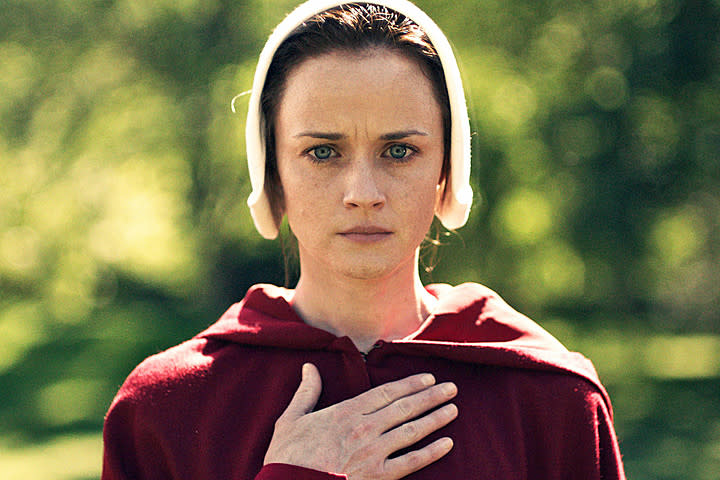
She was told not to make the show too dark.
"It was all about having it be visceral, having it be impressionistic, having it be sort of eerie and ominous. It was also a real fine line to balance. The producers, the studio, and the network were very, very, very concerned about - and over and over would say to me, 'We definitely have to make sure it's not too dark, we definitely have to make sure it's not too dark.' I had the opportunity to make light sometimes.
"Which was inspired by Margaret's book, because in the book, no matter how dark things are, she has a way of having her main character look at things as sort of satire. [Offred has] this attitude of, 'How ridiculous is this situation I'm in?' And that's what Bruce really wanted to carry forward through the series, and he did it through a lot of his voiceover - some that was directly passages from Margaret's book. A little bit of humor in spite of how shitty this situation is."
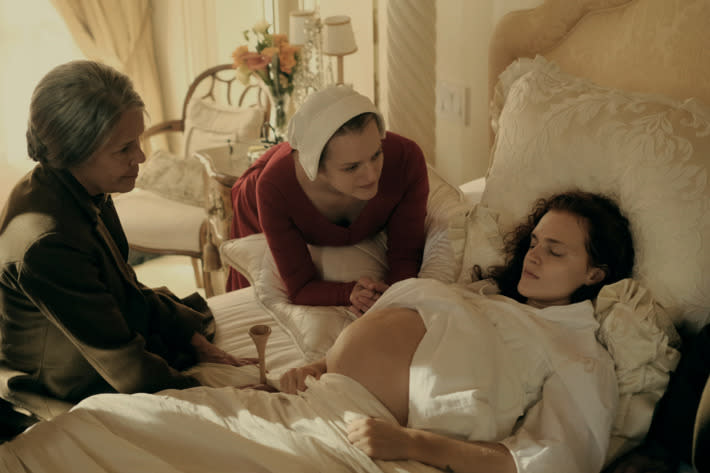
She wanted the Handmaid's to shop at supermarkets rather than farmer's markets.
"I didn’t want it to ever feel like the Handmaids belonged wherever they were. It should always feel wrong. I was like, 'If you put the Handmaids, with their red dresses and bonnets, in a farmers' market, they’re going to look like they belong there.' That’s not scary or weird. People are going to check out and think they’re watching a period show. No, they have to be in a supermarket with fluorescent lighting and the Guardians with the machine guns walking around. And then here you are in a modern-day supermarket, but there are no words or writing anywhere, because in Gilead women are not allowed to read. How much more eerie is that than seeing them in a farmers' market buying quaint packages of bread?"
Her work wasn’t influenced by the election - but she was shaken by it after the fact.
"I don’t think it influenced how we shot the episodes. Yes, we were all aware that Trump was campaigning and Hillary was campaigning, and there was a possibility of two very different presidencies looming ahead. And we kind of joked around about it, because we all had our opinions about what it would be - which is not what it turned out to be. We thought it was weird, that we’re making this at this time. But I don’t know that it actually affected how I would have done things.
"For example, the protest scene in episode three we shot well before Trump was elected. Weirdly, once everything happened, all these protests started happening, and they looked a lot like the protests we had already filmed. So that was very upsetting."
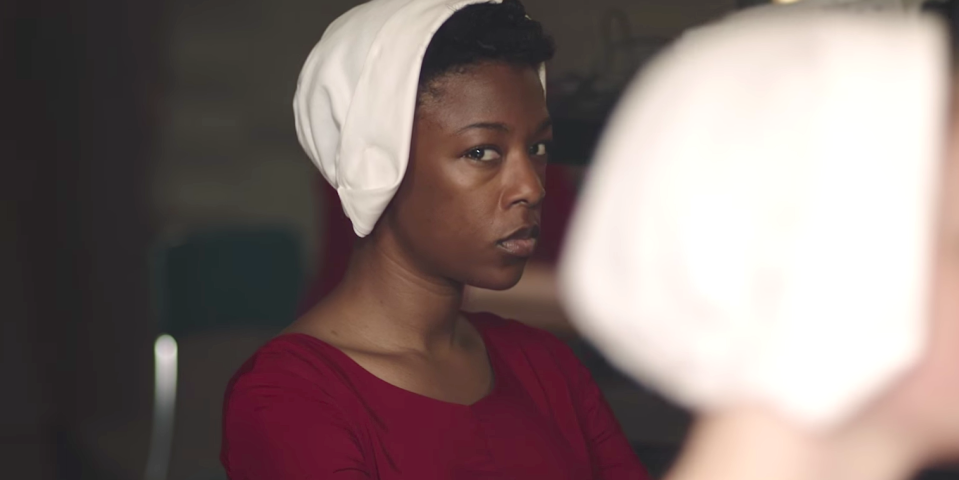
She doesn’t feel discriminated against by men in the film and TV industry.
"There are obviously issues in our industry. That starts at the top with studio execs who - not just men - don’t believe a woman could handle a huge franchise or big action movie. And that’s just bullshit to me because it doesn’t matter what your gender is. Funny enough, the most discrimination I’ve ever gotten as a woman in this industry has been from other women. I don’t see it as much anymore. This is when I was starting out, and there might be, say, an older female producer who didn’t want to hire me on a job and would’ve rather had an older male DP [director of photography] for her young director. I just remember that one incident in particular, and I think, Funny that she didn’t think I could handle it.
"So I don’t think it’s all men oppressing women - it’s not all black-and-white, basically. There’s a big gray area about it. And actually, in The Handmaid’s Tale, the women are enemies of other women. I think that’s a huge problem that people don’t concentrate on enough."
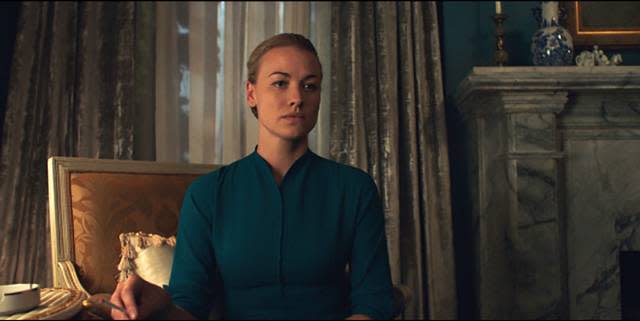
The men working behind-the-scenes on The Handmaid’s Tale were interested in getting the female perspective.
"We got a lot of respect from Bruce and [executive producer] Warren [Littlefield]. It was tricky for Bruce being a male showrunner on a show that has such a distinctly female point-of-view. But Bruce is really great about that. He’s sensitive to the fact that he’s not a women and there were some things that Lizzy [Elisabeth Moss] and I could bring to the table that he couldn’t.
"I also want to mention our DP, Colin Watkinson, who I bring up because I’m such a huge fan of his. He’s my greatest partner on this show besides Lizzy, and he was the biggest supporter. He wanted to get into the female perspective and he really, really was able to pull that off.
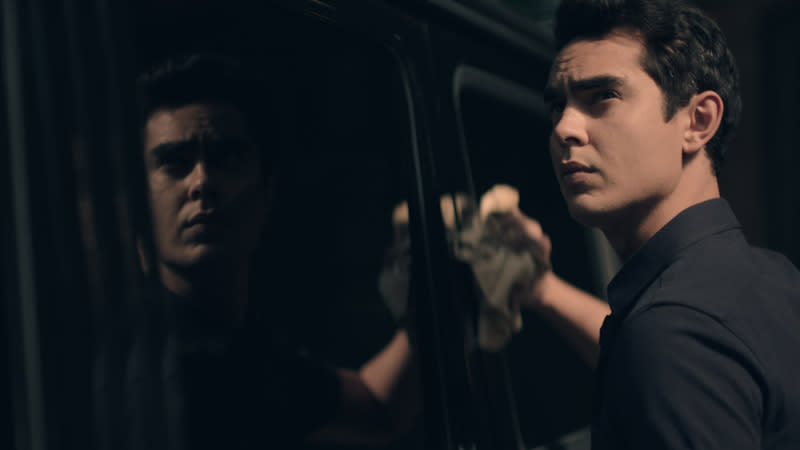
"I could have said, 'No, I’m only going to hire a female DP.' And of course I did want to hire a female DP initially, but I couldn’t get the ones I wanted. But no, it’s not about gender. It’s about sensitivity and it’s about willingness for other people to imagine you can do this. So we can’t discriminate against men either, and say, 'Well, only a woman can shoot this.' In Gilead, I’d like to point out, the world does not only oppress women, it also oppresses men. And I tried to show that side as well in all three episodes."
[related id='c25cde08-57a2-4b62-bf8f-cea4b359d687' align='center'][/related]
Follow Cosmo Celeb on Facebook.
You Might Also Like

